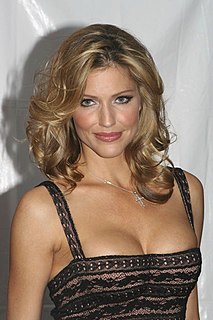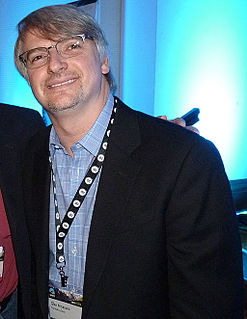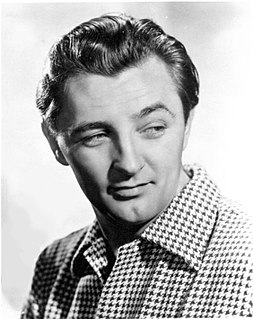A Quote by Tricia Helfer
Most of the time, with voice-overs, you're recording before they've got the graphics, and you also don't get a whole script. I get my lines, as I show up that day. You don't know what the rest of the story is, so you really rely on the people in the room that you're working with, so they can fill you in on what's going on, right around your particular lines.
Related Quotes
I'm quite severely dyslexic so I struggle with acting in certain ways. I always have to put in triple the amount of effort, which would always frustrate me a lot. I suppose that some people can just look at a script once and know it. That's not me. I really have to spend a bit of time with the lines. But it's my job and I've got better and better at it. If you're learning a lot, things start going quicker. Doing the lines with repetition and you just get it in your head somehow.
With voice acting, it liberates you to play characters you'd never do in a million years because you're physically not right. You can show up looking like hell, you don't have to memorize your lines because you can read them right off the page, and you get to play the most fun parts. You come in and you kick everyone's ass and you get your own ass kicked, and then you go home.
The comic book, and I've said it before, is a treasure trove. It's a grab bag. We certainly have characters and story lines that we really want to do - but to get there in a TV series, you have to take your time. Sometimes you can't get right to it. They're two different mediums. So we make it our own and really own the material. I like to think of it as an alternate universe.
I memorize my lines and I show up. I think it's just instinctual, and sometimes it's wrong and the director says, "No, do it this way." And then I can change, because I didn't spend all night practicing it this one way. All I do to get ready for the day is the night before, I read my lines once or twice, memorize them, and then I show up.
I was really proud to be in that show. I will never forget. I got the script to 'Millie,' and I'm flipping through the script and saying, 'Boy, I have some lines... I have a big song.' I was 25 years old and had never been on Broadway before. I got to the end of the script, and I was really nervous and excited. I realized I had a lot to do.
I love live theater. I get my rocks off by doing stand-up, and I am the only actor. But to show up eight times a week and not have that time for myself; to do someone else's lines? When I work for Wendy Wasserstein or Terrence McNally, Neil Simon or even Shakespeare, I do not have the right to change the lines.
I like doing voiceover work. I just like it in general, because you're constantly working on a very first-instinct level. You show up, you get in front of the microphone, you look at the lines, you say the lines, and then you move on. You work on a really primal level, is what I'm saying. You don't have to shave. You don't even have to wear pants. But, uh, that wasn't your question.
You might have, as a character, 30 pages of dialogue a day if you're what they call a 'front-burner story.' So you go home, you learn your lines for the next day, you get up, you're there at 7 in the morning, you do a quick rehearsal, you're on camera, you might leave, you know, at 7 at night and start the whole thing over again.
Some of the writers definitely got inspired by some of the story lines, but we are evolving in the 'Daredevil' story. So when it comes to 'Elektra', they didn't follow one of her specific story lines, you know. They really tried to capture what comes through the comics, but there's not one specific storyline.
To conjure a particular knowledge you visualize an architectural structure and then you walk around and see the details that then bring back the words or the poetry or the lines of thought. Memory's going extinct because we rely on machines and copies and so on. The idea of working with structures that conjure dreams, personages, history, time, that can be contained in this way as you walk through your mind, is a challenge.
I've found great virtue in two-thirds of the way into the message; right before I'm really want to nail home a point, pausing to tell a joke or to tell a light-hearted story, because I know my audience has been working with me now for 20 or 25 minutes. And if I can get them to laugh, get oxygen into their system, it wakes up those who might be sleeping, so there's something about using a story to draw people back in right before you drive home your final point. In that case I think it's real legitimate just to use a story for story's sake.




































